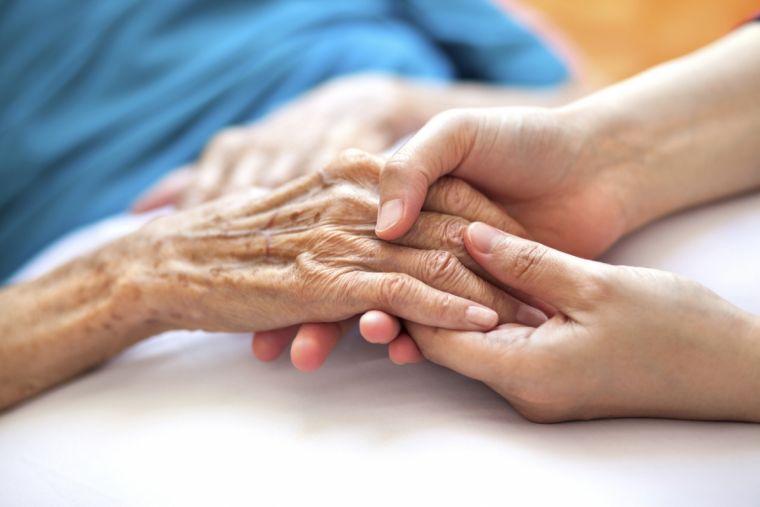The importance of friendship in dementia

Health Minister Sajid Javid has promised a new Government strategy on dementia later this year with a major focus on prevention and research. The plan will look at why people fall ill, with figures suggesting as much as 40% of dementia could be preventable.
It's a wise move, as preventative measures are showing their worth. A recent report by Alzheimer's Cohort Consortium shows that over the past two decades, in developed countries, the incidence of Alzheimer's disease fell by 16% and other dementias by 13%. This could mean that by 2040, 15 million fewer people will develop dementia. Lifestyle changes have a particularly strong impact.
A striking example is the 'Caerphilly Study,' a 35-year long study of middle-aged men in a Welsh valley where those who stuck to healthy lifestyles saw a 50% reduction in diabetes and a 60% reduction in dementia.
The Caerphilly Study also showed the power of friendship. The regular meet-ups for tests brought a sense of community, which some likened to attending school reunions. The valley has always had a strong community ethos, a known antidote for loneliness.
The effect of loneliness is now known to be as bad for the brain as smoking 15 cigarettes a day. It's not surprising that in some countries solitary isolation is still used as torture. Research suggests that loneliness is associated with an increased risk of mental health problems, including depression, anxiety, low self-esteem, sleep problems and increased stress (Mind).
In a 30-year study of over 4 million people in New Zealand, over 6% of people with mental health conditions developed dementia during the observation period. Among those without mental health conditions, only 1.8% developed dementia.
"There's been a great deal of focus on developing medicines to prevent dementia, including Alzheimer's," says Dr Schneider from the Keck School of medicine, University of South California in Los Angeles, but he believes that non-pharmacological measures, as well as conscientious efforts to tackle known risk factors will have a better success rate.
People need people
Being lonely is not part of God's plan for us: He designed us to live and develop in relationship with one another.
"Let's see how inventive we can be in encouraging love and helping out, not avoiding worshiping together as some do but spurring each other on, especially as we see the big Day approaching," says Hebrews 10:15 (MSG).
"Build one another up," says 1 Thessalonians 5:11 (NIV).
People who regularly attend church have lower stress levels and tend to live longer than others, several studies have found. One professor found the results so impressive that although he was an atheist, he was considering joining a church.
Churches are doing excellent work in preventing loneliness. Members visit and keep in touch by phone and email. When they couldn't visit during the Covid lockdown, the effect on older people was devastating. Last September the Office for National Statistics published data revealing a 65% increase in extra dementia and Alzheimer's deaths at home during the pandemic.
One of the dementia statistics is a friend whose husband had mild cognitive impairment before lockdown. Isolated from church and visitors, he was diagnosed with dementia a few months before it ended. He is a 90-year-old retired pastor who's been a spiritual father to hundreds in his time, and he badly missed the stimulus of conversations with people.
Now, in his Friday Day Centre, a carer encourages him to talk about the countries he has visited, looking at photographs and maps his wife has given her. He comes to life and talks happily, and I'm sure also gently witnesses of Christ. His brain is stimulated, and he enjoys the sessions. Times like these can slow the progression of dementia.
Communal activities like this are recommended by Dr Schneider's team at UCLA instead of antipsychotic drugs used to treat agitation and aggression, which can have severe side effects. His team found that a more effective way was increased social contact and communal activities: "Group cognitive stimulation therapy, focusing on games, discussions and interactive approaches, was also deemed beneficial."
This is what we've found with our group cognitive and spiritual stimulation programmes, called 'Brain and Soul Boosting' (BSB). They come in a printed series in workbook format. A hospital chaplain told us that the psychiatrist, intrigued with the improved mood of patients with dementia, came into the Day Room to see 'what was going on'. They are being used in churches and faith groups.
Being a friend to people with dementia is rewarding. I will be looking more at this, including some of the challenges involved, as part of a special online event for Pilgrims' Friend Society's Prayer Week (13 - 19 June). The event I am speaking at is Friendships and Dementia on Wednesday 15 June at 7.30pm. For details of how to sign up for this and two other events we are running, please visit: https://www.pilgrimsfriend.org.uk/prayerweek2022
Louise Morse is a Cognitive Behavioural Therapist, author, speaker and specialist in Dementia and issues of old age who works for and writes for Pilgrims' Friend Society. Her Masters degree examined the effects of dementia on family members. She has been following news and research for over 20 years and has published five books on dementia with over 45,000 copies sold (Lion Monarch and SPCK).











